If you are looking for an effective, easy-to-manage and powerful air conditioning solution, we can help. The team at Thermal Air Conditioning Solutions are experts in the installation and maintenance of residential air conditioner systems in Tweed Heads, Byron Bay and the Gold Coast.
We offer a wide range of powerful heating and cooling solutions from well-known companies, such as LG, Fujitsu and Daiken. Our team are professionals in the installation and maintenance of air conditioners, working with you to ensure you have the best system for your needs.
After installation, our technicians will give you all the information you need to run your system. Contact us today if you would like to learn more about the best air conditioning units for your home.
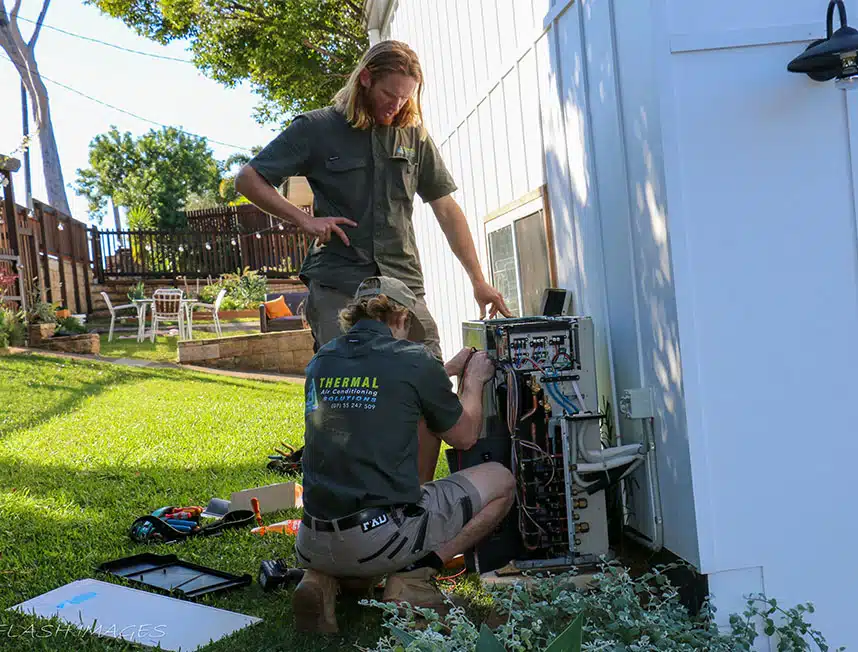

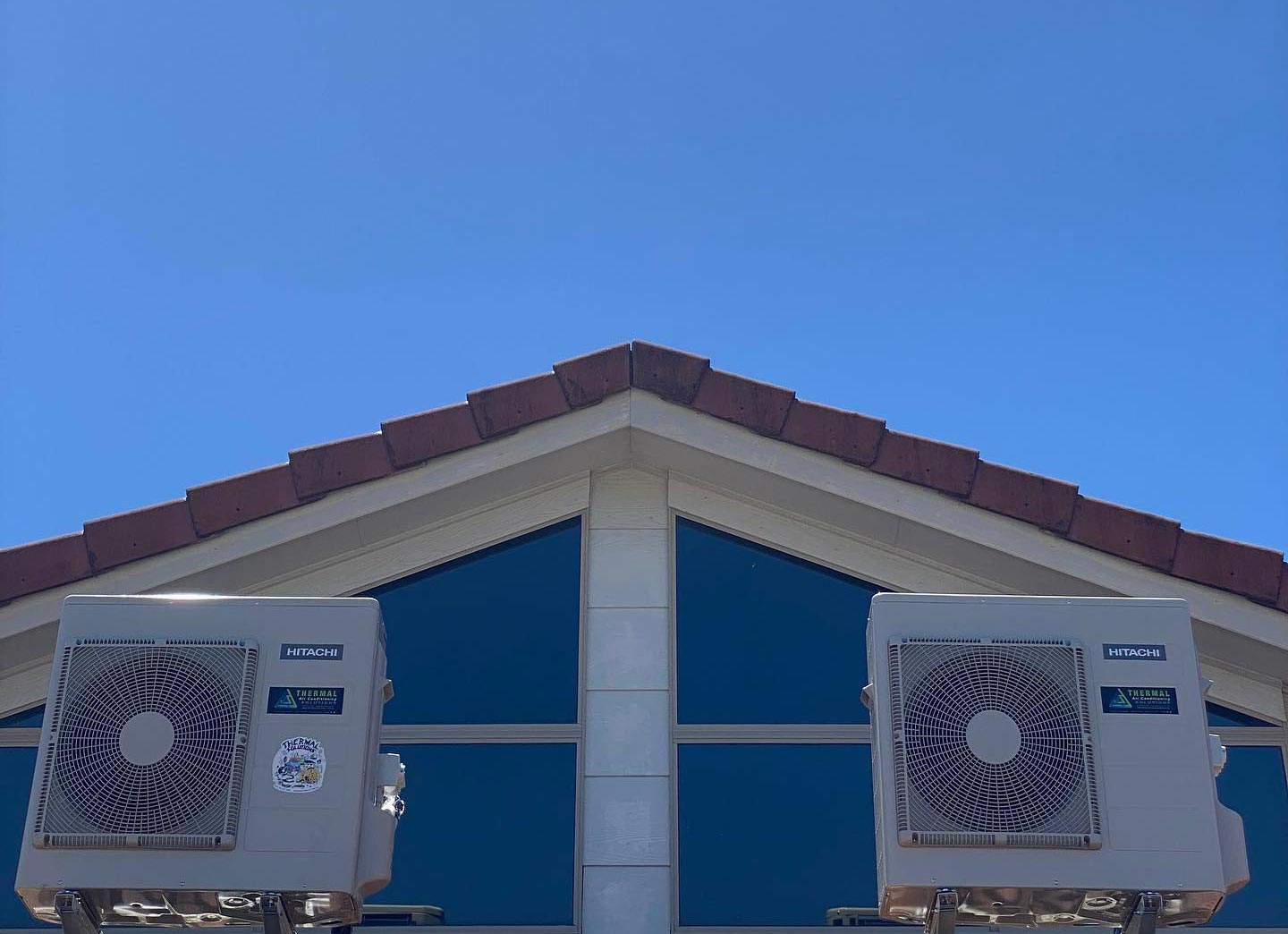
When it comes to residential air conditioning in Tweed Heads, no two homes are exactly alike, which is why we provide tailored solutions designed specifically for your lifestyle and comfort needs. At Thermal Air Conditioning Solutions, our expert technicians carefully evaluate your home’s layout, size and individual cooling requirements to create the ideal climate control solution. Whether you’re looking to cool a single room, your entire home or upgrade your existing system, we ensure optimal performance, energy efficiency and lasting comfort.
We specialise in a wide range of residential air conditioning systems, including split-systems, multi-split units and ducted air conditioning, making it easy to find the perfect match for your home. With our professional installation services, your residential air conditioning in Tweed Heads will operate at peak efficiency, delivering reliable and consistent cooling year-round.
Choosing the right air conditioning solution is essential for maintaining a comfortable living environment, especially during Tweed Heads’ warmest months. Our team provides customised cooling solutions designed to meet the unique demands of your home. From efficient split-system units perfect for individual rooms or smaller living spaces, to comprehensive ducted air conditioning systems designed to provide uniform cooling throughout larger homes, we ensure you enjoy optimal comfort.
Our tailored approach guarantees your system delivers the right amount of cooling precisely where you need it, ensuring you stay comfortable while keeping your energy bills under control. Trust our experienced team to handle your residential air conditioning in Tweed Heads with precision and care.
The performance and longevity of your air conditioning system depend heavily on professional installation. At Thermal Air Conditioning Solutions, our fully licensed technicians are highly experienced in installing residential air conditioning systems throughout Tweed Heads. We ensure your air conditioning unit is correctly sized, expertly positioned and properly installed, guaranteeing maximum efficiency and reliable performance from day one.
Proper installation also simplifies ongoing maintenance, reducing the risk of costly repairs down the track. To keep your system running smoothly, we also offer expert air conditioning maintenance in Tweed Heads, ensuring your home’s cooling system remains efficient and dependable for years to come.
Regular air conditioning maintenance is crucial to ensuring your home remains comfortable and energy-efficient year-round. At Thermal Air Conditioning Solutions, our skilled technicians provide professional air conditioning maintenance in Tweed Heads designed to keep your system running smoothly, preventing costly repairs and unexpected breakdowns. With our expert care, you can enjoy reliable cooling, improved indoor air quality and reduced energy costs, all while protecting your valuable investment.
Our comprehensive maintenance plans include thorough inspections, cleaning of essential components and preventative servicing tailored specifically to your residential system. By scheduling regular air conditioning maintenance in Tweed Heads, you ensure your system remains efficient, extends its lifespan and continues to deliver exceptional comfort when you need it most.

At Thermal Air Conditioning Solutions, we offer thorough, professional maintenance services that go beyond basic inspections. Our expert technicians meticulously assess your entire residential air conditioning system, carefully checking for issues that could lead to performance loss or costly repairs. By investing in regular air conditioning maintenance in Tweed Heads, you significantly reduce the risk of unexpected system failures.
Through regular servicing, we ensure your system’s filters, coils and internal components remain clean and functional. This not only helps your residential air conditioning operate efficiently but also maintains optimal indoor air quality, creating a healthier environment for your family.
Your air conditioning system is a major investment, and protecting it with routine maintenance is essential. Regular servicing from our experienced technicians helps your residential air conditioning operate reliably for years longer, saving you money and ensuring consistent comfort. Our professional air conditioning maintenance in Tweed Heads addresses minor issues early, preventing larger, expensive problems from occurring later.
With routine care, your system maintains peak efficiency, reducing strain and energy consumption, ultimately lowering your power bills. When you choose our professional team for your maintenance needs, you can trust your residential air conditioning in Tweed Heads will continue providing comfort for your family season after season.
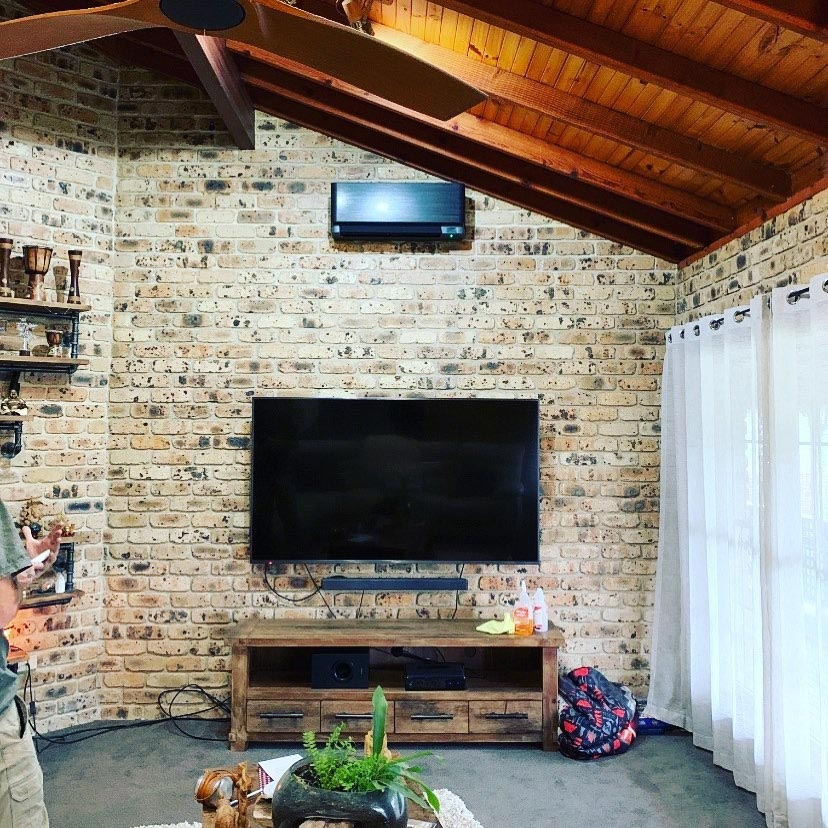
Energy efficiency is a priority for many homeowners in Tweed Heads, and choosing the right air conditioning system can significantly reduce your power bills and environmental footprint. At Thermal Air Conditioning Solutions, we specialise in providing residential air conditioning in Tweed Heads that combines superior cooling performance with remarkable energy savings. Our modern, energy-efficient cooling solutions ensure your home remains comfortable year-round without unnecessary expense or energy waste.
We offer advanced cooling technology, including inverter-driven split systems and ducted air conditioning systems designed to maximise efficiency and provide precise temperature control. By selecting our energy-conscious solutions, you ensure your home stays comfortable while significantly reducing your ongoing energy costs.
High energy bills are often the result of outdated or inefficient cooling systems. At Thermal Air Conditioning Solutions, we help homeowners upgrade to high-efficiency systems that deliver consistent comfort while using significantly less power. Our expert technicians assess your home’s specific cooling needs, recommending residential air conditioning solutions in Tweed Heads that align with your comfort and budget requirements.
By installing a high-efficiency air conditioning unit, you’ll not only enjoy enhanced comfort but also immediately notice savings on your monthly energy bills. Our commitment is to deliver reliable cooling performance while ensuring maximum cost-effectiveness for your family.
Environmentally friendly cooling solutions are becoming increasingly important for homeowners who want comfort without compromising sustainability. At Thermal Air Conditioning Solutions, we offer residential air conditioning in Tweed Heads that utilises cutting-edge technology designed to minimise environmental impact. Our eco-friendly units feature advanced refrigerants, low-energy compressors and smart thermostats, helping you maintain comfortable indoor temperatures with reduced carbon emissions.
Choosing an eco-friendly cooling system demonstrates your commitment to sustainability while providing your family with reliable and efficient comfort. With our energy-conscious options, you can stay cool and comfortable while actively contributing to a healthier environment in Tweed Heads.
When selecting an air conditioning company, it’s essential to choose professionals who understand your local climate and lifestyle needs. At Thermal Air Conditioning Solutions, we take pride in our extensive experience serving Tweed Heads homeowners, ensuring personalised service, reliable performance and lasting comfort. Our team’s deep understanding of the region’s climate means we provide practical, effective and durable cooling solutions tailored specifically to your home.
We don’t just install air conditioning—we build lasting relationships with our customers. Our commitment to quality workmanship, prompt service and exceptional customer care sets us apart, making us the preferred choice for homeowners throughout Tweed Heads.

Our team of highly skilled, fully licensed technicians has years of experience working with residential cooling systems of all types. With continuous training on the latest industry technology, our professionals deliver reliable installations, precise maintenance and timely repairs, ensuring your home stays comfortable year-round.
At Thermal Air Conditioning Solutions, we take pride in our reputation for outstanding workmanship, attention to detail and strict adherence to safety standards. Trust our dedicated experts to deliver exceptional results every time, no matter how large or small the job may be.
Outstanding customer service is at the heart of everything we do. From your first consultation through to ongoing service and support, our friendly and professional team is committed to providing clear communication, personalised advice and unmatched customer care. We take the time to understand your specific cooling needs, providing tailored solutions that perfectly match your lifestyle and budget.
Our goal is to ensure your complete satisfaction at every stage, delivering peace of mind alongside superior comfort for your home in Tweed Heads.
We believe transparency is crucial when it comes to pricing. At Thermal Air Conditioning Solutions, you’ll never encounter hidden costs or unexpected fees—just clear, upfront pricing that allows you to plan with confidence. Our detailed quotes outline exactly what’s included, ensuring you fully understand your investment before we begin work.
Choosing us means choosing a reliable local business committed to honesty, integrity and straightforward service, giving you complete confidence in your home’s air conditioning solutions.
If you are unsure about the right kind of residential air conditioning unit for your home, here is a simple breakdown of some of the main kinds of system we offer.
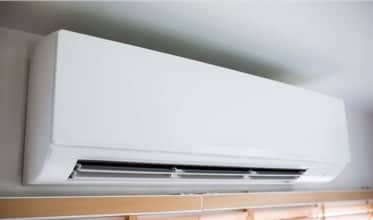
This type of AC unit requires an indoor and outdoor unit and is one of our most popular solutions. The split system is the best option for homeowners looking to cool a single space. These units are easy to install and incorporate with the design and décor of the room.
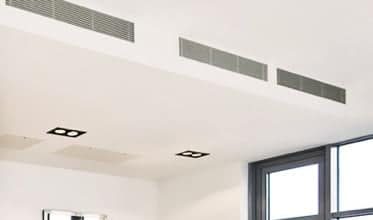
A multi-split system is one in which an outdoor unit is connected to two or more indoor units. This type of air conditioning system is ideal for households that generally have more than one room occupied at any given time, requiring independent climate control.
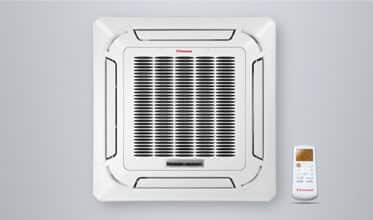
Under ceiling cassette types are a great solution for residential environments that have larger spaces to cool; open-plan kitchens, games rooms and other spaces made for a high number of occupants.
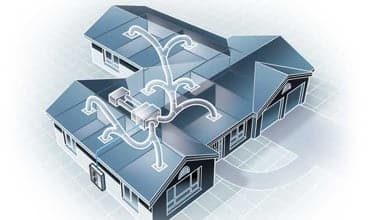
This is the ideal solution for homeowners who want to control the climate of their entire house or a larger area. If you have a smaller budget, this is the perfect option for you.
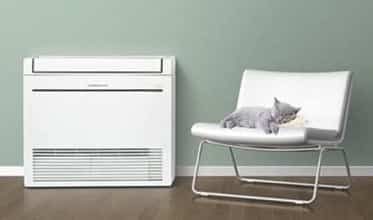
If your walls have limited space or they are not strong enough to support a standard air conditioning unit, then a floor-mounted console might be the answer.
If you need more advice on the right type of air conditioning for your home, contact our dedicated and friendly team today on 07 5524 7509.
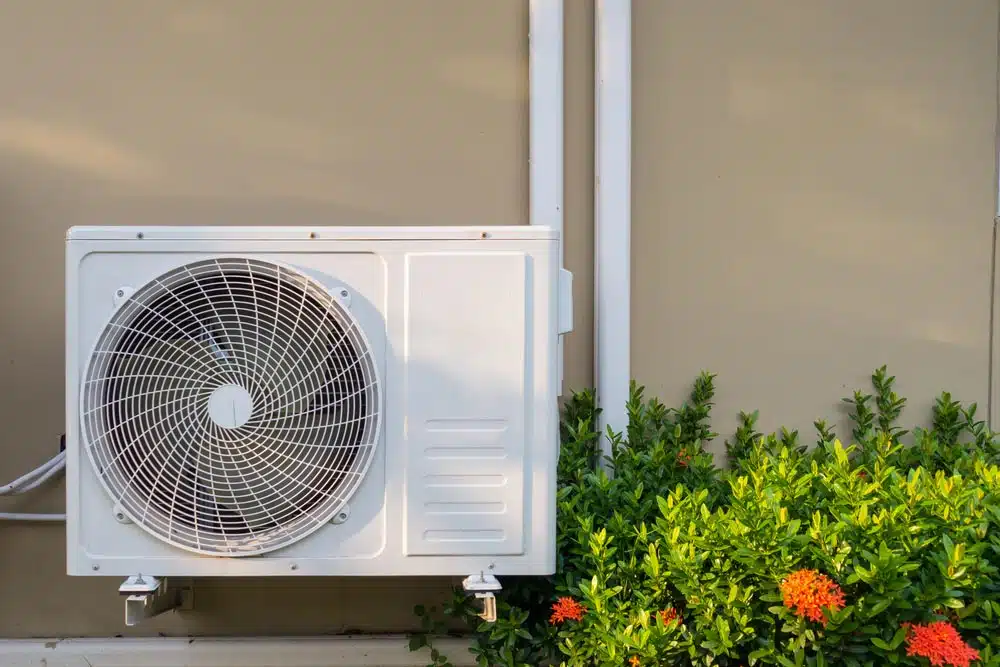
Residential air conditioning has become an essential part of modern homes, which is why it’s vital to understand the basics of residential air conditioning, its energy usage and ways to maintain efficiency.
Australia is known for its hot and humid climate, making air conditioning a must to maintain a comfortable living environment. It not only helps to cool the air but also to remove humidity, which can be especially beneficial during the summer months.
The energy consumption of air conditioning units can vary greatly depending on factors such as the size of the unit, its efficiency and how it’s used. Here are a few ways to reduce the energy usage of your residential air conditioning unit:
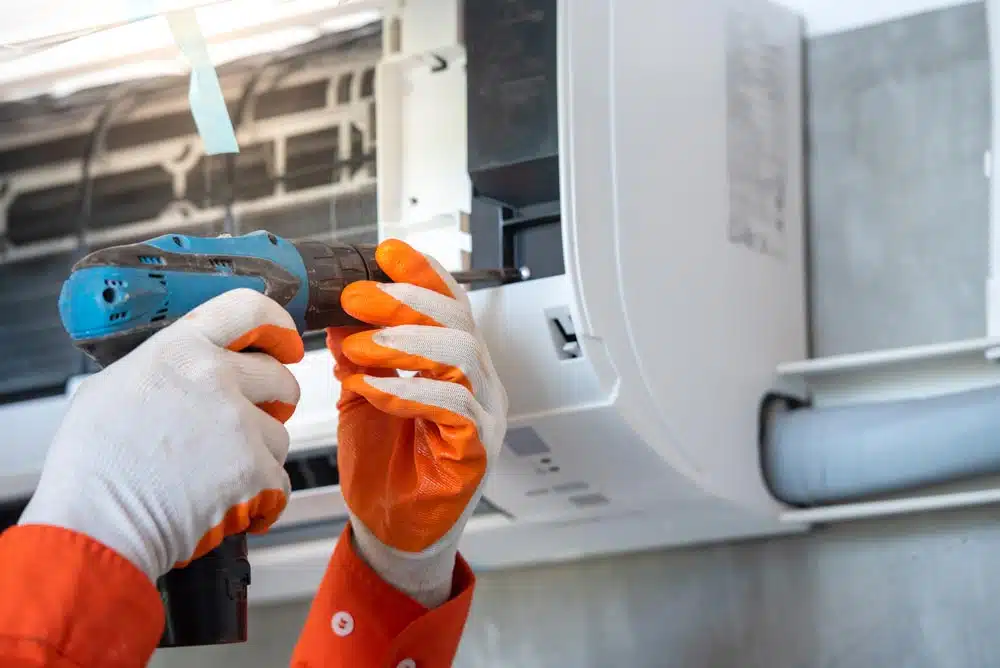
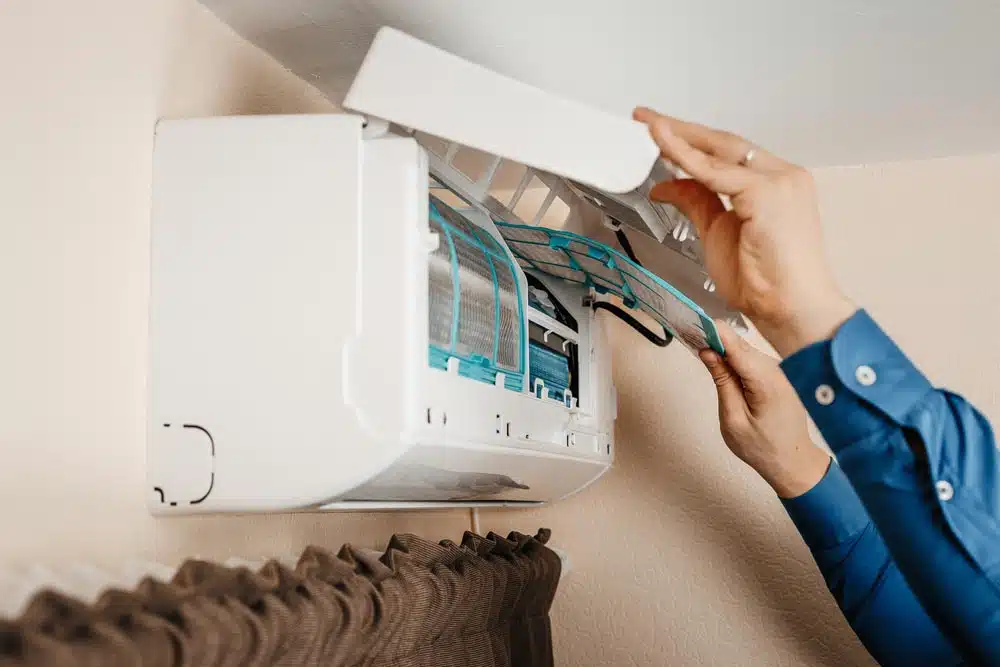
Single-Split Systems: Single-split systems are the most common residential air conditioning unit, consisting of one indoor unit connected to one outdoor unit. They’re ideal for small- to medium-sized homes and can be installed in a single room or multiple. These systems are easy to install and relatively low-cost compared to other air conditioning systems.
Multi-Split Systems: Multi-split systems are similar to single-split systems, but they have multiple indoor units connected to a single outdoor unit. This type of air conditioning system is ideal for homes with multiple rooms or areas requiring separate temperature control. Multi-split systems are more efficient than single-split systems and are more flexible, as you can control each indoor unit independently.
Cassette Type: Cassette type air conditioning systems are installed in the ceiling and are ideal for large commercial spaces or open-plan homes. These systems provide efficient and uniform cooling throughout the room, and the units are discreetly hidden from view. Cassette type air conditioning systems are more expensive than other systems, but they offer a more streamlined and aesthetic look.
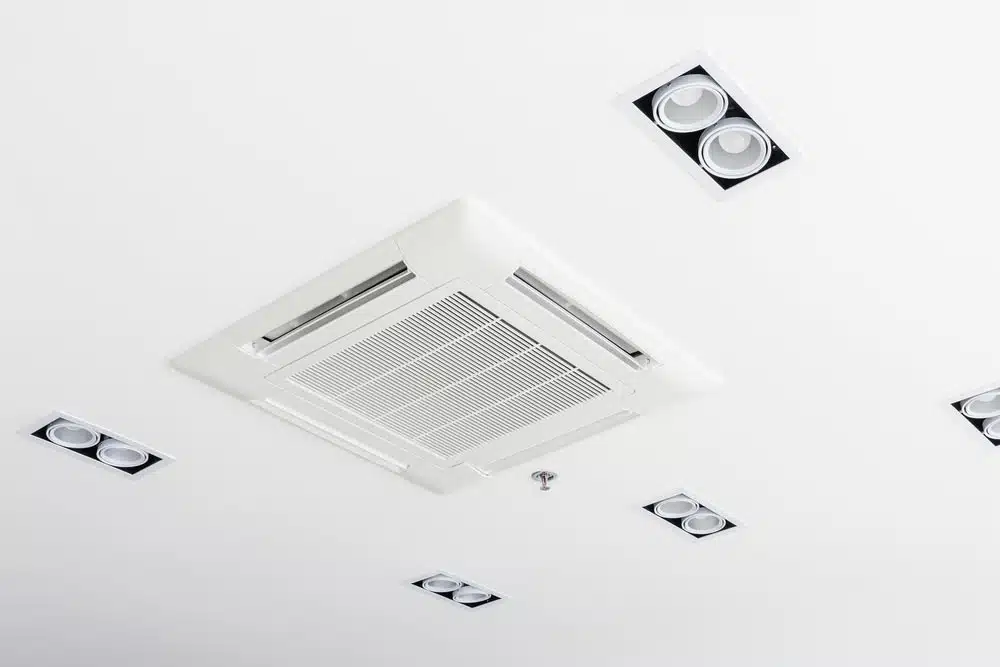
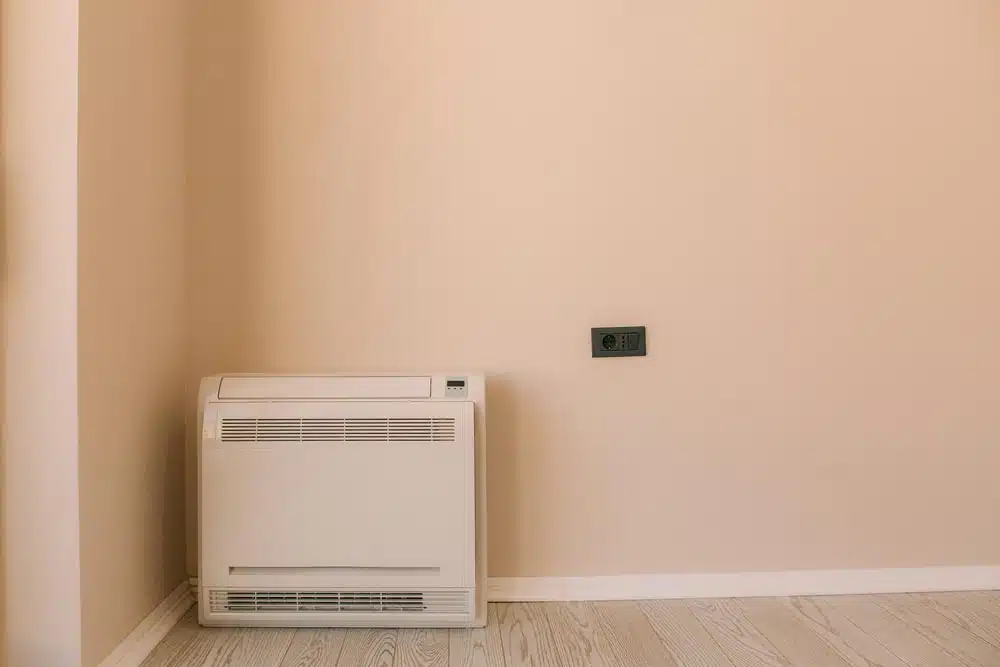
Ducted Air Conditioning: Ducted air conditioning systems are ideal for large homes or commercial spaces. They consist of an outdoor unit connected to a series of ducts that run throughout the building. This type of air conditioning system provides efficient and uniform cooling to every room in the building and is controlled by a central thermostat. Ducted air conditioning systems are the most expensive type of residential air conditioning systems, but they are also the most efficient and offer the most comprehensive temperature control.
Floor-Mounted Console: Floor-mounted console air conditioning systems are like single-split systems, but they’re installed on the floor rather than on the wall. These systems are ideal for homes with limited wall space or those who want a more compact air conditioning system. Floor-mounted console air conditioning systems are relatively low-cost compared to other types of systems and are easy to install. However, they can take up floor space, so it’s important to consider this when deciding on the kind of system to install.
Aside from complete failure, there are a number of warning signs that indicate your A/C needs attention. Some of these are detailed below.
Modern A/C systems usually carry a warranty of between 3 to 10 years. During this time, in the event that there is a problem with any of the A/C parts, they will usually be replaced at no additional cost. You can reasonably expect your A/C to last for the warranty period. After this, the exact length of time the system will keep going depends on factors such as the frequency and length of use, how hard the motor has to work, whether the unit is serviced regularly, air quality (dirty air degrades a unit more swiftly than clean air) and the calibre of the unit.
As a general rule, most A/C systems are ready for replacement after 15 years or so, particularly if you are experiencing a deterioration in performance and/or the system requires frequent repairs and part replacement.
This is quite a complex question, as a lot depends on how the A/C is used. For example, if you’re only cooling one room in the home, a single split system will cost less to run than a ducted system (which will cool the whole house). Conversely, if you want whole-house cooling, ducted A/C costs less to run. Furthermore, although ducted A/C will pump out air at a constant temperature into each room, there can be significant temperature variations between rooms due to variables such as aspect, level of insulation, whether windows are left open, room size or whether the room is on the ground, first or second floor.
Because the most energy-efficient form of A/C varies depending on requirements and the property, we recommend calling us for a FREE assessment. We can then advise on the system that’s going to be most cost-effective, with the lowest running costs, for your circumstances.
Common reasons for water collecting at the base of your A/C unit include a clogged condenser line, a dirty air filter, a full drain pan or a refrigerant leak. The first three problems you can usually fix yourself (or use an A/C technician if you want a fast, convenient fix). A refrigerant leak will need professional attention.
Some properties have walls that aren’t suited to wall-mounted A/C, or a ducted system. This may be because the building is old, has a quirky design or A/C may need to be reconfigured in the medium-term. In these circumstances, a floor-mounted unit could be the solution. This operates like any other form of split unit A/C, but the interior units are mounted on the floor rather than the wall.
As already stated, there isn’t a right answer to this question. The answer depends on your A/C requirements, the type of property you have, the budget available and a number of other factors. We are happy to provide a FREE assessment of your needs, as well as offer suitable recommendations that are the best option for you and your home.
Contact us today on (07) 5524 7509 (Tweed Heads) or (02) 6638 0708 (Byron Bay) to get your project up and running.
Contractor’s License: 283 506C
QBCC License: 1310157
ARCTICK License: AU38131
| Monday | 8:30am – 4:30pm |
| Tuesday | 8:30am – 4:30pm |
| Wednesday | 8:30am – 4:30pm |
| Thursday | 8:30am – 4:30pm |
| Friday | 8:30am – 4:30pm |
| Saturday | Closed |
| Sunday | Closed |